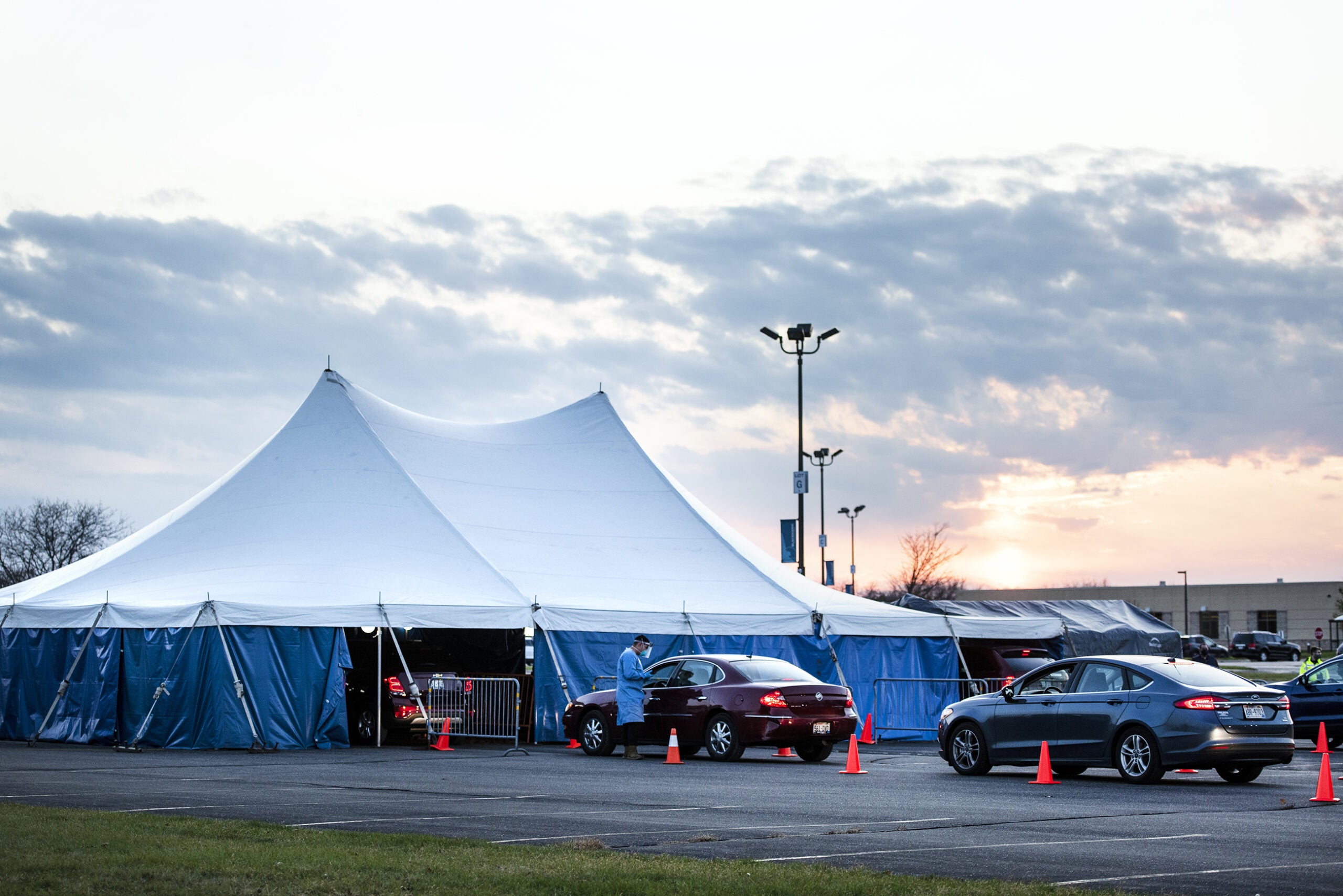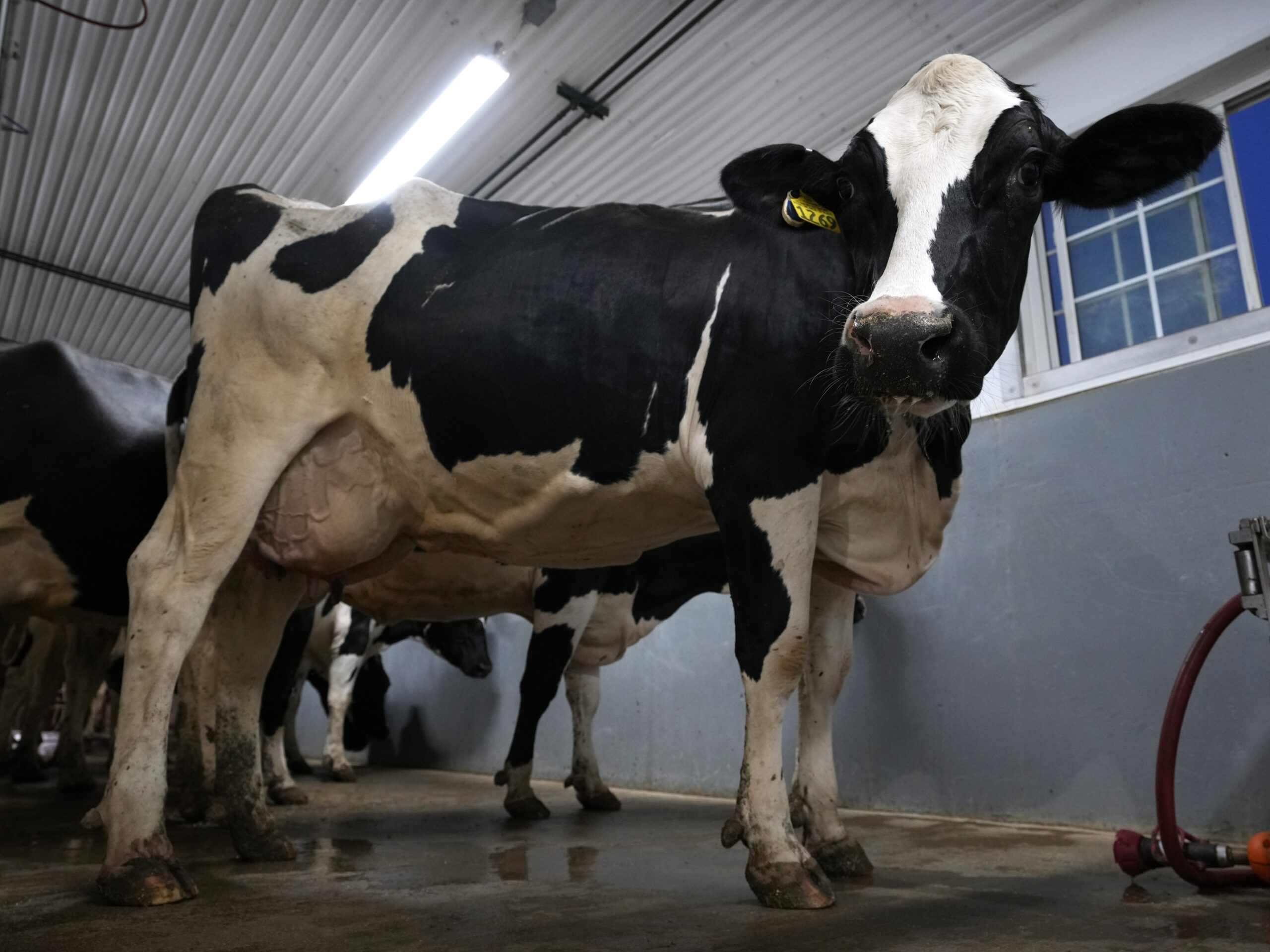Wisconsin health officials say a new form of the novel coronavirus that is believed to be more contagious has been detected in Eau Claire County.
According to the state Department of Health Services (DHS), the infected person traveled internationally. The new strain of the virus, which causes COVID-19, was found through routine genome sequencing of specimens collected in testing.
DHS announced the finding Wednesday morning.
Stay informed on the latest news
Sign up for WPR’s email newsletter.
On Tuesday, before the variant was detected in Wisconsin, DHS officials said its presence in the state won’t change their safety recommendations.
“Stay home, avoid gatherings, wear a mask, physically distance, get tested if you have any symptoms or are in contact with someone with COVID-19. These are the best strategies to stop the spread of respiratory viral infections like COVID-19, regardless of the strain. If new, more contagious strains are in the community, then we have to work even harder on these things in order to prevent infections,” spokesperson Elizabeth Goodsit said by email to Wisconsin Public Radio.
Goodsit also said the presence of a more transmissible strain may mean a larger portion of the population needs to be vaccinated to end the pandemic.
Based on scientific studies, researchers believe the variant, identified as B.1.1.7, spreads more rapidly and easily than the original strain of the coronavirus. There is no evidence that the B.1.1.7 strain leads to an increased risk of death or more severe illness, or that vaccines are less effective against it.
It’s normal for viruses to mutate. Many are benign, and they give scientists a way to track how and where COVID-19 is spreading. But a mutation that allows the virus to spread more easily will lead to more positive cases of COVID-19, some of which will be severe.
“A more transmissible variant is something to take seriously and may alter the way we think about schools reopening or other thing we are doing in the community,” said Dr. Thomas Friedrich, a professor in the Department of Pathobiological Sciences at the University of Wisconsin-Madison’s School of Veterinary Medicine.
During a press conference Wednesday afternoon, Eau Claire City-County Health Department Director Lieska Giese said the individual who tested positive for the new variant has already finished quarantine. She said they developed COVID-19 symptoms soon after returning to Eau Claire County in late December.
“So, that work had already happened,” said Geise. “We did not know it was a case related to this COVID-19 variant strain until today.”
Geise said contact tracing found the individual with the variant strain did not come into contact with anyone else.
“I would emphasize that we do not expect from this specific case for there to be community spread,” said Geise. “We did identify all the close contacts.”
The variant form of the virus was first discovered in England in November and December. The variant has since turned up in ten other states including Colorado, California, Florida, Minnesota, New York and Georgia.
New variants, which could be more transmissible, have also been detected in South Africa and Japan.
Editor’s note: This story will be updated. Shamane Mills, Megan Hart and Rich Kremer contributed to this report.
Wisconsin Public Radio, © Copyright 2024, Board of Regents of the University of Wisconsin System and Wisconsin Educational Communications Board.






